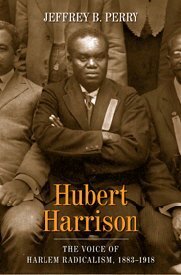Important Summer Reading – Please Pass this to a friend!
Reviewers’ comments from Winston James, Arnold Rampersad, Joyce Moore Turner, Amiri Baraka, John Woodford, Carole Boyce Davies, Wilson J. Moses, Bruce A. Dixon, Scott McLemee, Wayne Glasker, Shelley Ettinger, Cornel West, Manning Marable, Genevieve Ryan, Bill Fletcher Jr., Elena Pajaro Peres, Komozi Woodard, Abayomi Azikwe, E. Ethelbert Miller, David Levering Lewis, Christopher Phelps, Emily Jane Dawson, Colin Benjamin, Herb Boyd, Yuri Kochiyama, Sterling Johnson, David Roediger, Allen Ruff, Felicia Pride, Rhone Fraser, Byan D. Palmer, Vanessa Bush, Peniel E. Joseph, Clarence Lang, Ken Olende, Alberto Benvenuti, Bret McCabe, Peter Moore, LeShawn Harris, Brian Jones, Larry A. Greene, Jonathan M. Hansen, Maria Bibbs, Charles L. Lumpkins, Portia James, George Tyson, Gwen Edwards, Gary Y. Okihiro, Stephanie Hanlon, Lloyd Dev, Gene Bruskin, Michael N. Jagessar, Matt Witt, Ian Kavuma, Susan Van Gelder, Brent McCabe, Hugh Hamilton, Kevin “Rashid” Johnson, Dave Zirin, Lavelle Porter, and others can be found HERE and HERE
Hubert Harrison (1883-1927) is one of the truly important figures of early twentieth-century America. A brilliant writer, orator, educator, critic, and political activist, he was described by the historian Joel A. Rogers, in World’s Great Men of Color as “the foremost Afro-American intellect of his time” and “one of America’s greatest minds.” Rogers adds that “No one worked more seriously and indefatigably to enlighten” others and “none of the Afro-American leaders of his time [the era of Booker T. Washington, W. E. B. Du Bois, and Marcus Garvey] had a saner and more effective program.” As Harlem grew into the “international Negro Mecca” and the “center of radical Black thought,” A. Philip Randolph emphasized that Hubert Harrison was “the father of Harlem radicalism.”
